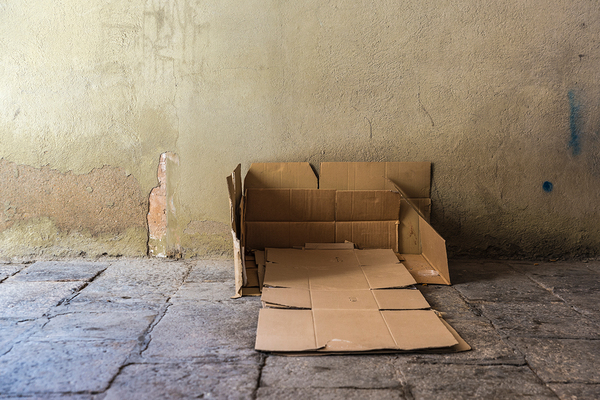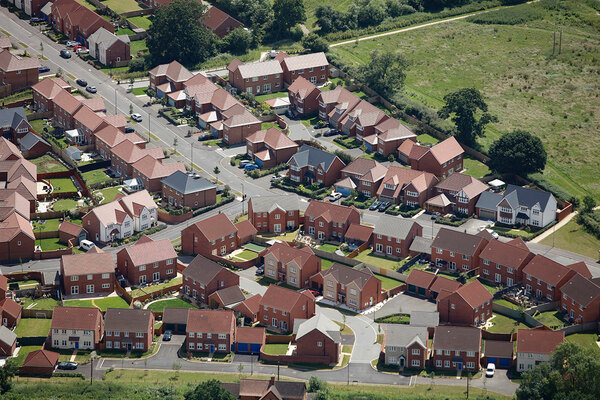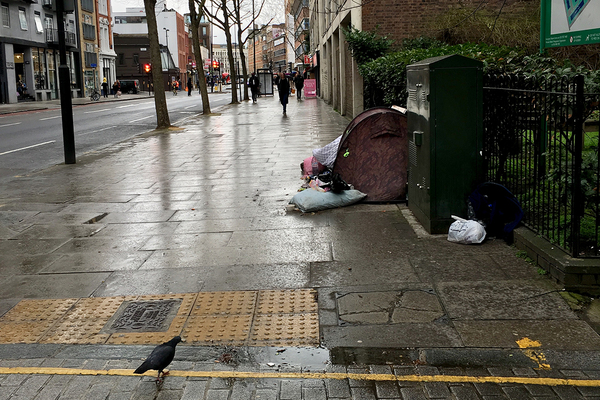You are viewing 1 of your 1 free articles

Fighting homelessness is a moral imperative. It is down to us to make change happen
A perception exists that housing associations are not working effectively in partnership to tackle problems such as homelessness. The industry can and must do more, writes Stuart Ropke
Is perception reality? Well, not always but it certainly indicates what individuals believe.
Community Housing Cymru recently asked MPs, assembly members, local councillors and third sector partners about their views of housing associations in Wales. The results were illuminating.
Those surveyed recognised housing associations as the number one provider of social housing and affordable homes in Wales. But every group of politicians, whether located in Westminster, Cardiff Bay or town halls, also expressed that councils should be the main provider.
Some respondents expressed a desire for housing associations to play a role in decarbonising homes, tackling homelessness and building resilient communities. As organisations with strong community roots in Wales, I would argue that housing associations are already doing all that.
But key influencers feel that we need to do much more.
Some feel housing associations aren’t engaging in effective partnership working and many respondents pointed out the huge opportunities to work in partnership with local government, the third sector, small and medium-sized enterprises and other public services, such as health.
For many of our members, tackling homelessness is their raison d’être. But we must rise to the challenges that homelessness presents – that requires housing associations to do much more.
That said, the perceptions of homelessness are unsurprising. Rough sleeping, which has increased rapidly as long-lasting austerity has bitten, is the most visible and obvious manifestation of the housing crisis that people experience day to day.
Homelessness has a devastating impact on individuals and families. And, quite rightly, in Wales housing and local government minister Julie James is fighting to tackle homelessness and has made eliminating rough sleeping a priority.
Providing affordable, high-quality homes is at the heart of housing associations’ mission. But given the political backdrop, there will always be a demand that social housing providers do more.
The latest statistics we have tell us that housing associations housed 1,725 households who were priority need homeless in 2017/18 and that our members provide over half the supported accommodation in Wales.
Housing associations are at the forefront of new models of tackling homelessness, including Housing First, but are we doing enough to keep people in their homes in the first place?
Is it right that we should challenge ourselves and ask “could we do more”?
I think so.
The minister has laid out an ambition that evictions into homelessness should cease and housing associations in Wales are working towards that aspiration. Housing associations are committed to playing their full part in ending homelessness.
Many associations run support services to identify and tackle challenges people face early on so that homelessness can be prevented.
“Housing associations are at the forefront of new models of tackling homelessness, including Housing First, but are we doing enough to keep people in their homes in the first place?”
Many of these services are run from their own resources, including benefits and budgeting advice, digital literacy, employability support, crisis support (such as food parcels), and other specialist support to tackle issues – like hoarding.
But despite a lot of work going on across the sector and beyond to prevent homelessness, the issue still remains. So what can we do to tackle it?
We know that a third of homelessness is caused by health problems. We also know that those who have suffered from four or more adverse childhood experiences are 16 times more likely to become homeless.
This is why housing associations in Wales are investing in dedicated early intervention support, establishing relationships with tenants from the very beginning to build trust and ensure that issues are identified early.
However, further work needs to be done to address evictions, as a result of rent arrears or anti-social behaviour, where there is no alternative accommodation available.
This is not solely a housing issue but a wider responsibility of public services. We live in an era of stretched budgets in local government and the health service. Too often referral routes between housing associations and partners, including social and mental health services, are fractured. And unfortunately silo working practices still too often persist both in housing and the wider public sector.
“Too often referral routes between housing associations and partners, including social and mental health services, are fractured”
The challenge is clear. How can public services and the third sector work together with housing in a holistic way to reduce the level of evictions and increase security of tenure for all?
As organisations that were often set up to fight homelessness, the moral imperative lies with housing associations. It is down to us to make change happen. Perhaps then the perception that many politicians hold about the housing association movement will shift.
Stuart Ropke, chief executive, Community Housing Cymru













